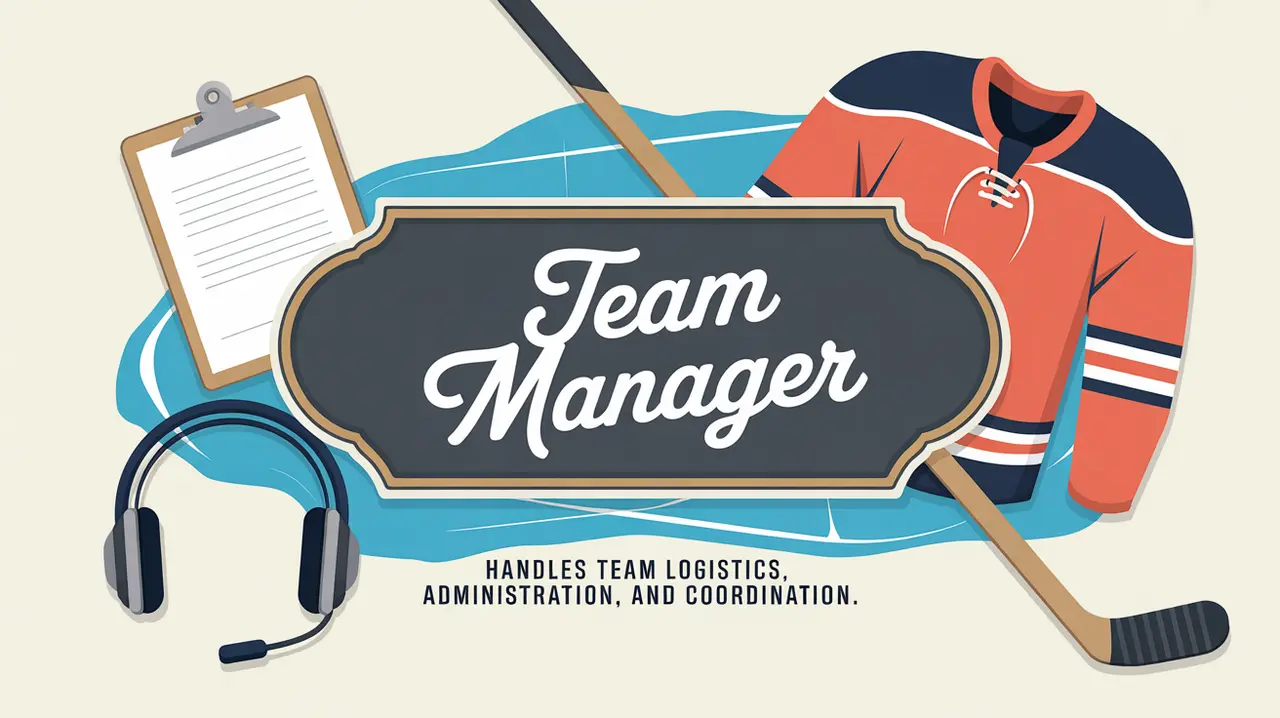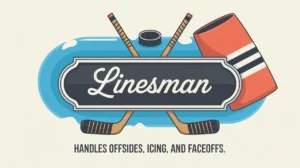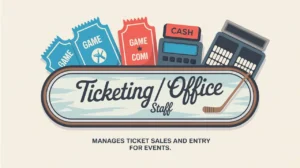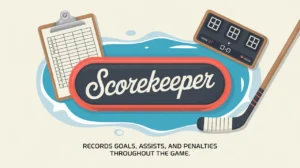Jim’s Intro to the Team Manager
Hi folks, Jim here, the only commentator who once tried to organize a team road trip using sticky notes and a map of the wrong region.
What is a team manager?
A team manager is the operational backbone of a hockey team, handling logistics, communications, scheduling coordination, and administrative duties so that coaches can coach and players can play.
They’re not on the bench drawing up plays, but without them, nobody knows where the bus is, which tournament starts when, or who forgot their medical forms. They’re the bridge between families, staff, players, and leagues.
How does it work?
Team managers keep the team running smoothly through planning, coordination, and communication:
Logistical Planning
- They coordinate team travel, hotel bookings, transportation, tournament registrations, and practice schedules, often months in advance.
- If the team is on the road, odds are the manager knows every gas station between here and there.
Administrative Work
- Team managers handle paperwork, league registrations, rosters, waivers, and eligibility requirements, making sure every box is checked and no one misses a game over a form.
Communication Hub
- They serve as the main point of contact between coaches, parents, players, league officials, and sometimes the rink itself, ensuring information flows clearly and quickly.
Problem-Solving and Support
- When last-minute problems arise (and they always do), team managers find solutions on the fly, whether it’s a missing jersey, a delayed bus, or a player without equipment.
Coordination with Other Staff
- They work closely with coaches, schedulers, registrars, and facility managers to keep calendars aligned and conflicts minimal.
Common Situations Involving Team Managers
- Tournament Travel: Booking hotels, managing itineraries, and communicating updates.
- Roster Submissions: Ensuring all documents are correct and deadlines are met.
- Schedule Adjustments: Coordinating changes with leagues and facilities.
- Team Communications: Sending reminders, updates, and last-minute alerts.
- Crisis Management: Solving unexpected problems before they become distractions.
How do you make good decisions with it?
Effective team management depends on organization, communication, and foresight.
- Plan Early: The earlier logistics are handled, the smoother the season.
- Centralize Communication: Avoid information chaos by using consistent channels.
- Anticipate Problems: Build in buffers for travel, paperwork, and scheduling.
- Stay Neutral: As the hub, managers must balance perspectives diplomatically.
- Document Everything: Clear records prevent confusion and save time.
How do you master it?
Mastering the team manager role requires exceptional organizational skills, patience, and calm under pressure. The best managers create order out of constant moving parts, communicate clearly, and build trust with everyone in the team ecosystem.
What does it look like when done right?
A great team manager makes the season run like clockwork. Travel is smooth, schedules are clear, paperwork is complete, and everyone knows where they need to be and when. Players focus on hockey, coaches focus on strategy, and parents breathe a little easier.
Commentator’s Corner
Jim’s Take
The team manager is like the air traffic controller of hockey. Nobody notices them when things go well, but when they’re not there, everyone’s circling the rink wondering what went wrong.
Parent Tip
Appreciate the team manager’s time. They’re often volunteers juggling this role with their own lives, so responding quickly to their messages goes a long way.
Player Tip
Respect the structure they create. Show up on time, have your gear ready, and help make their job easier.
A Final Thought
The team manager is the steady hand behind the scenes, blending logistics, diplomacy, and discipline to keep the season on track. When mastered, the role combines organization, communication, and composure, turning potential chaos into smooth operations.









